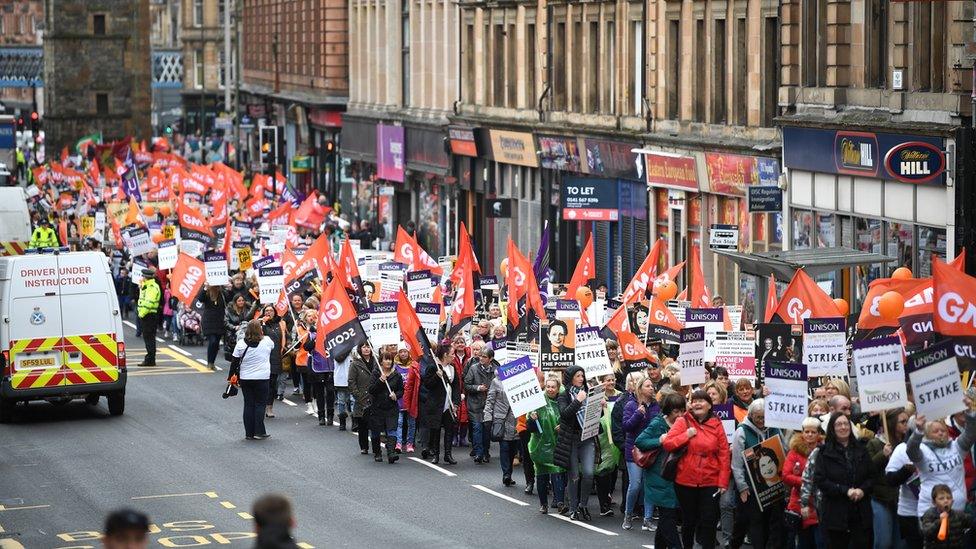Glasgow council equal pay claim firm suspends all activities
- Published
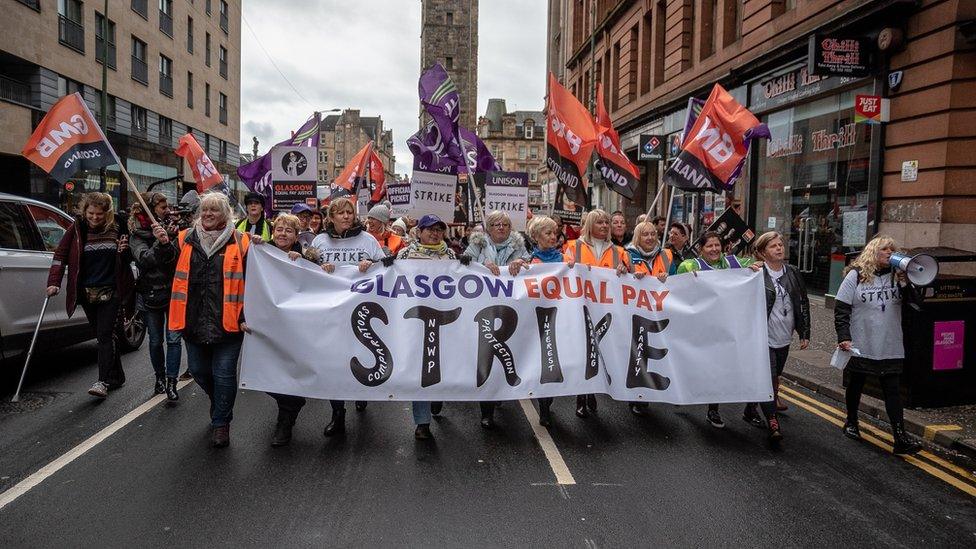
Thousands of council workers staged a strike over the dispute
The company that led the equal pay legal action against Glasgow City Council has suspended all activities.
Action 4 Equality Scotland said the move followed an approach by the Financial Conduct Authority over its failure to comply with new legislation.
Director Stefan Cross QC insisted it would not affect the ongoing settlement process but could have an impact on future negotiations.
The FCA would not confirm or deny any investigation.
In October, a BBC Disclosure documentary raised questions about A4ES and the £500m deal it had done with Glasgow City Council.
Claims management companies in England and Wales have been regulated for several years but this has only been the case in Scotland since April.
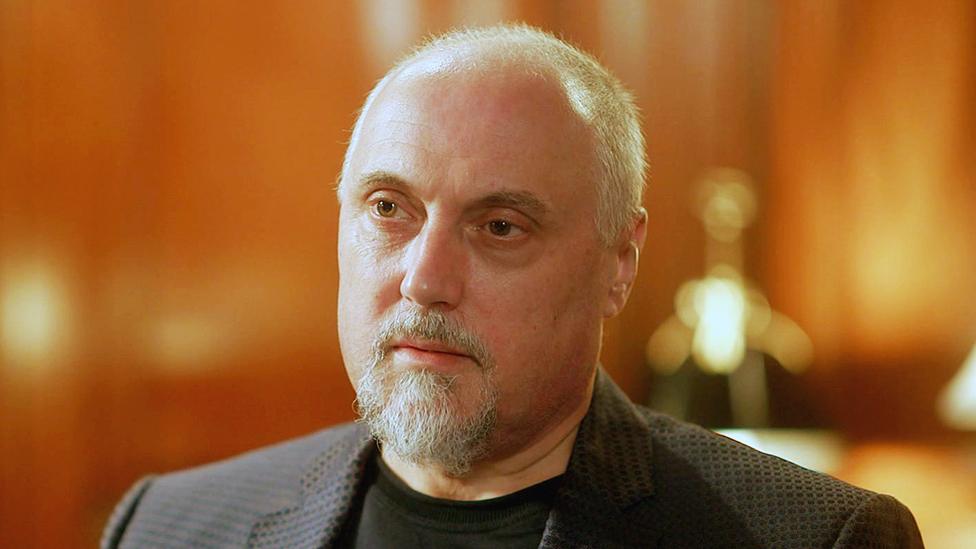
Stefan Cross was the claims lawyer who acted for the majority of the women
In a statement, external, Mr Cross said A4ES was unaware of the change in the law.
It now intends to make an application to the FCA to become a regulated claims management company, a process that can take several months.
The lawyer said the FCA approach was the reason the company had shut down the website.
It has also decided not to take on any new clients and will not to be involved in any further direct negotiations as a representative.
Union pledges
Mr Cross said the move would not affect the ongoing settlement process, which will now be handled by a law firm, but could have an impact on the claims of caterers employed by Baxter Storey.
He added: "It is very regrettable that this situation has occurred and I'd like to personally apologise to the women involved. However, I can reassure them that we have taken all necessary steps to ensure that their claims can proceed normally.
"The overriding priority has been to protect the interests of these women, and Addleshaw Goddard have been working with closely with us on these cases for the past six years, so are ideally placed to ensure a smooth continuation of their cases."
Last month, BBC Disclosure told how thousands of women who fought Glasgow City Council for equal pay have had money deducted to pay legal fees, despite pledges from their unions.
Members of Unison, Unite and the GMB were told they would get 100% of the settlement money offered.
But BBC Disclosure obtained legal documents showing "all claimants" have had fees "deducted".
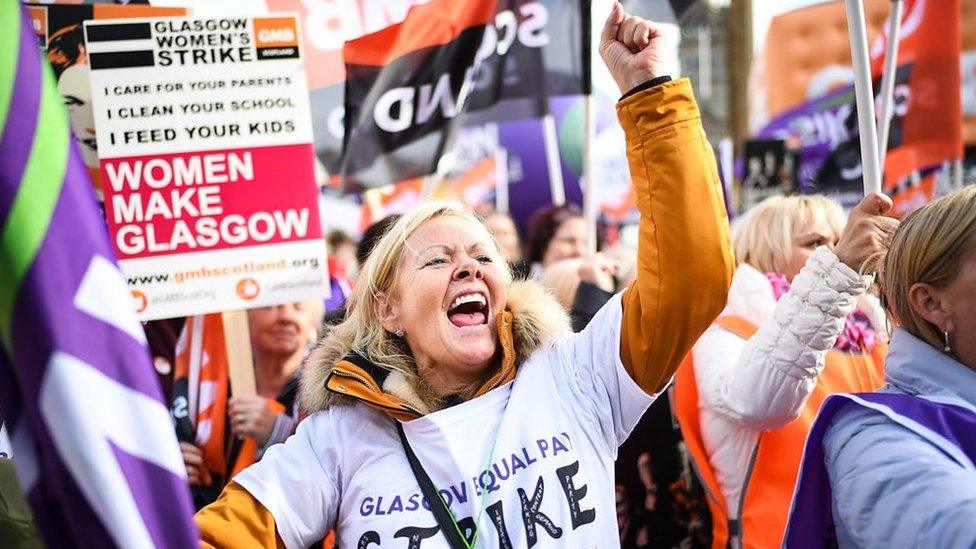
Workers took party in a 48-hour strike over equal pay
Employment lawyer Carol Fox later said she was "troubled" that women who were represented by unions had paid fees.
She has also called for an inquiry into Glasgow City Council's equal pay settlement.
The long-running dispute over women being paid less than men in jobs of the same grade was settled in January.
Glasgow City Council agreed to pay out a reported £548m to compensate the women for the money they should have been paid, in many cases going back to 2006 when the new job evaluation scheme was adopted.
The scheme was supposed to ensure that men and women received equal pay for jobs of the same value.
But instead, some traditionally female-dominated roles such as catering or home care ended up being paid up to £3 an hour less than male-dominated jobs such as bin lorry workers or gardeners.
'Most fair'
The majority of the 16,000 equal pay claimants were represented by private claims company Action 4 Equality, run by Mr Cross.
As part of this deal, it was agreed that every claimant would have a percentage of the settlement offered by the council deducted in legal fees. This included those backed by their unions.
According to Mr Cross, 6.9% was deducted from all the claimants, with a proportion being paid to his company.
In his interview with the BBC, Mr Cross acknowledged the percentage deducted equated to "many millions" of pounds.
He said: "The unions' proposal was that we had to agree parity, to start with. The cost of that is that fees had to be paid somehow. And this is the most fair, most beneficial way for everybody that we did it on that basis."

Disclosure: The Great Equal Pay Scandal can be seen on the iplayer.
Previous Disclosure investigations include:
- Published15 October 2019
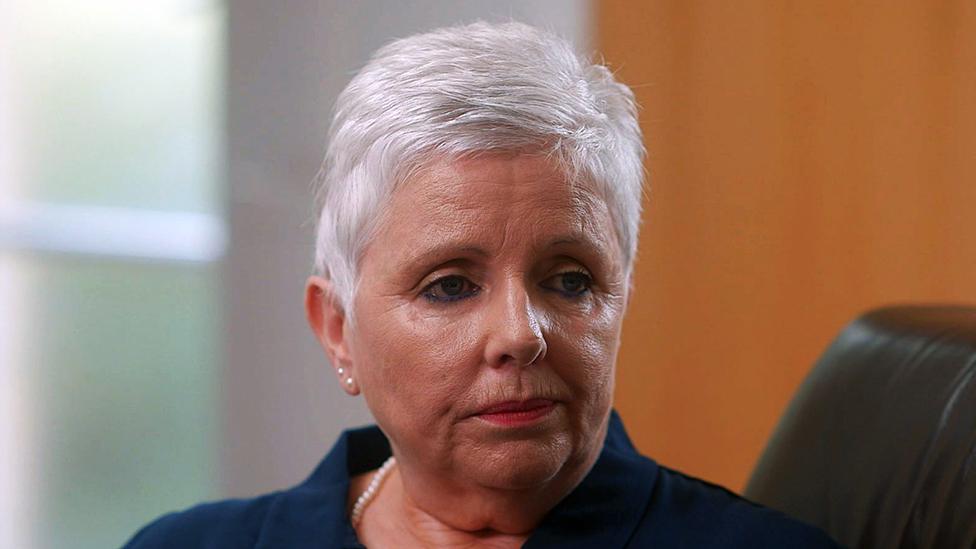
- Published14 October 2019
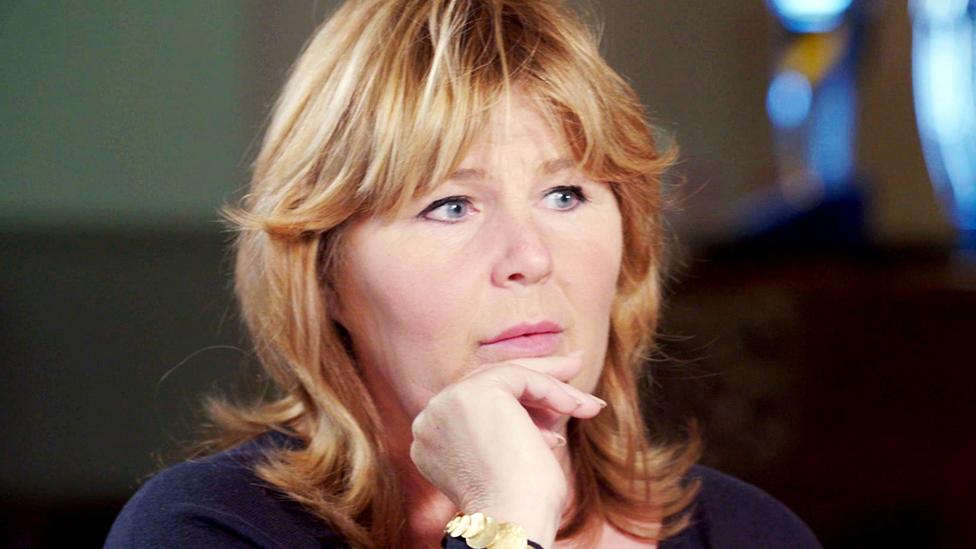
- Published27 June 2019
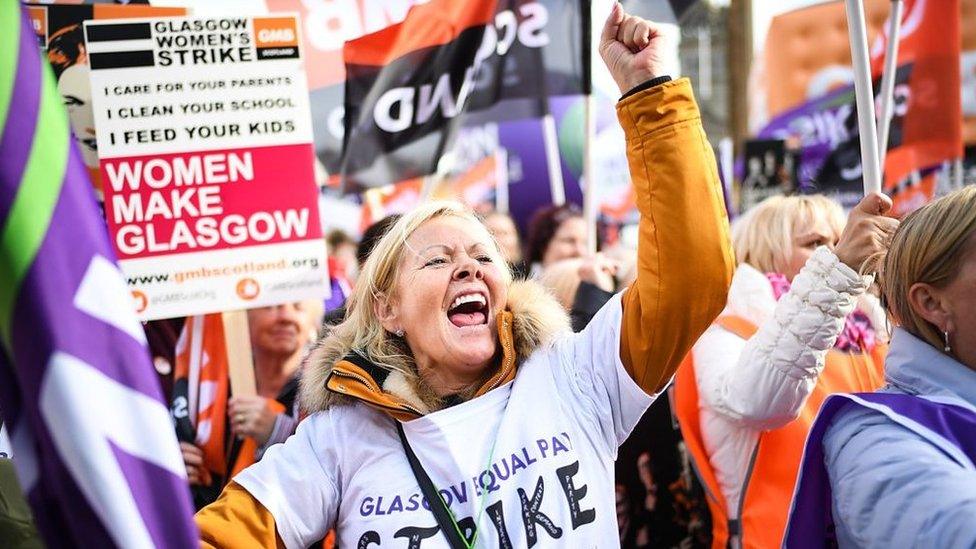
- Published22 May 2019

- Published7 February 2019

- Published17 January 2019
